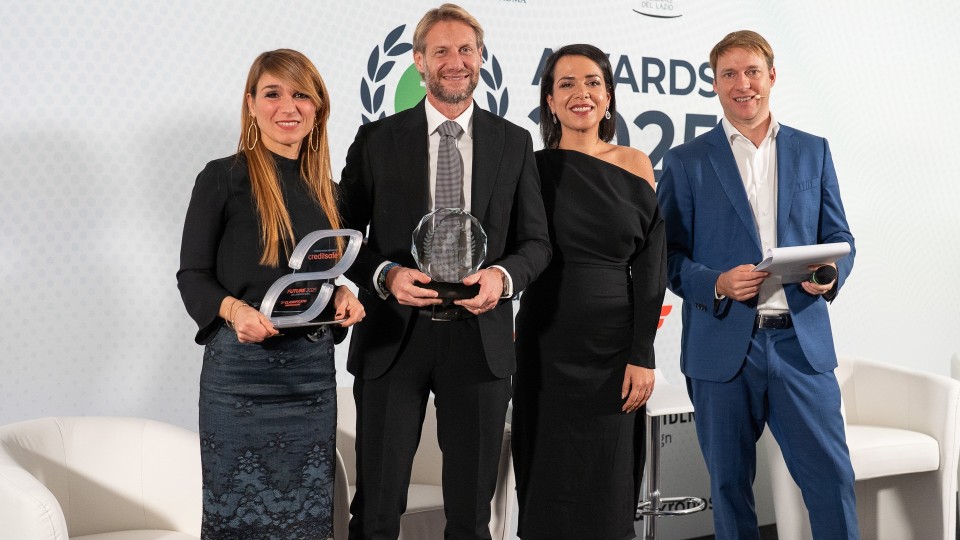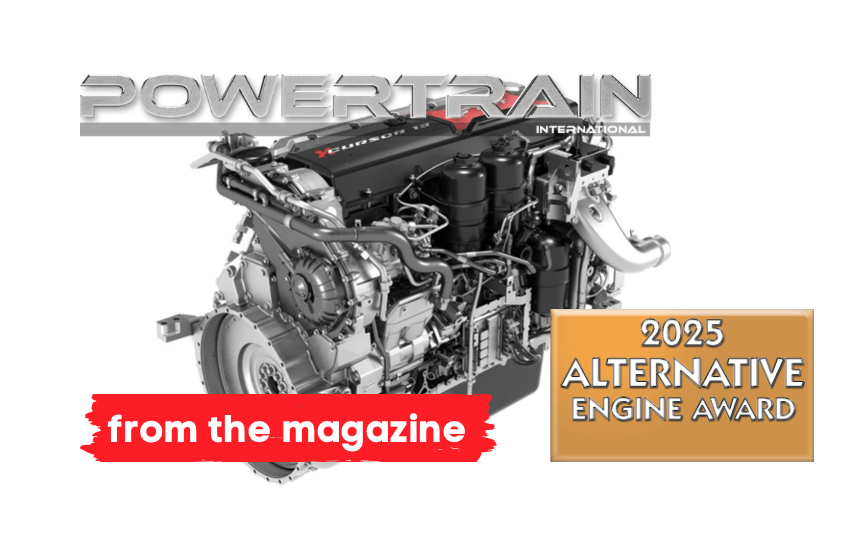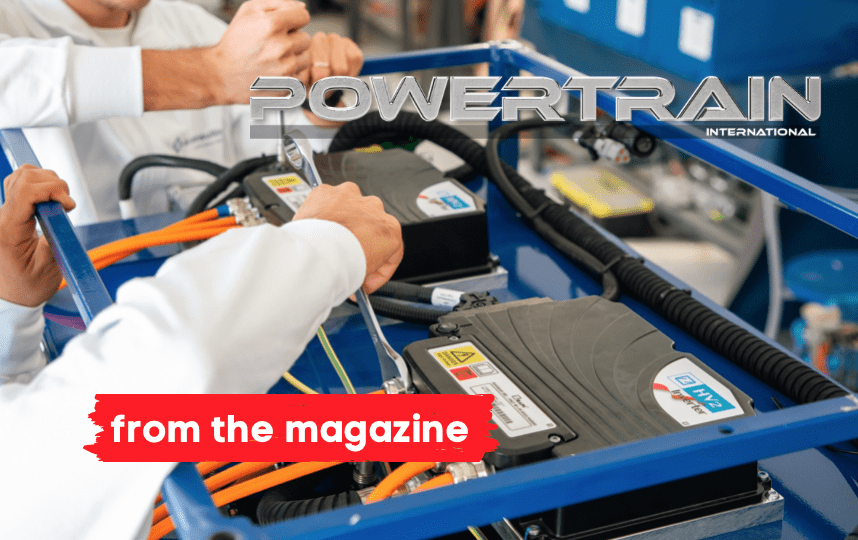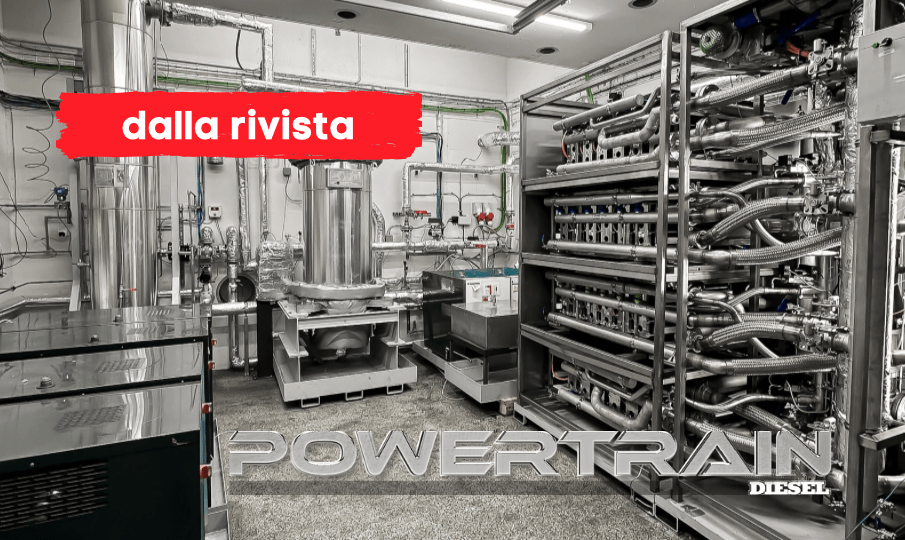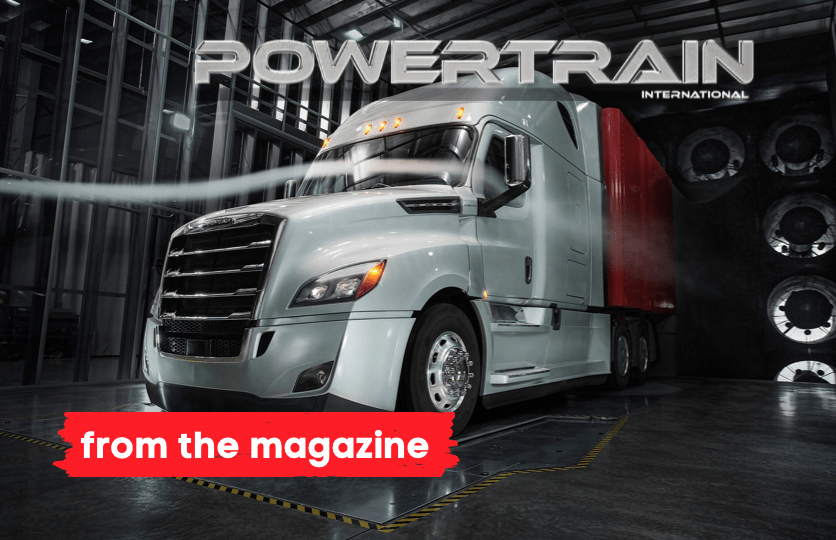TAFE, Deutz & Dual+
Deutz signed a supply agreement with TAFE for up to 30,000 2.2- and 2.9-litre compact engines. Using the expertise of Interact Analysis, we delved into the details of this agreement and Deutz’s Dual+ strategy. Read the full story in the November issue of Powertrain International.
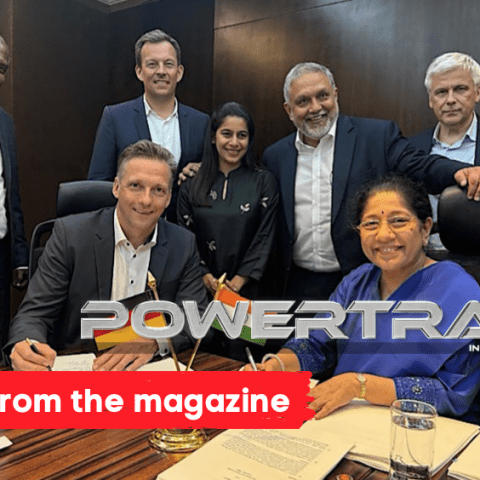
Exactly one year ago, at Agritechnica, we interviewed Massimo Ribaldone, President Business Development at TAFE. The third largest tractor manufacturer in the world, in terms of volume, heart and brain in India, has also put down roots in Europe. “TAFE produces about 200,000 tractors a year, operating the Massey Ferguson and Eicher brands in India. Most of the vehicles are sold in the Indian and Asian markets, with a significant presence in Africa. Europe is part of the company’s expansion and globalization plan.” In this regard, Ribaldone told us about the “new research and development centre in Telford, England, where a team of engineers from all over the world focus on developing advanced products for European markets.”
We had to wait just over half a year to welcome the news of the agreement between TAFE Motors and Deutz. Indian sights shift back from Europe to the huge home market, but the most interesting “landscapes” are those glimpsed from the banks of the Rhine. TAFE’s plant in Alwar, Rajasthan, will produce up to 30,000 2.2-litre (50-75 hp) and 2.9-litre (75-100 hp) Deutz engines under license. In this case, the growing demand in the Indian market is in TAFE Motors’ sights, however… A deal of this scale opens up multiple scenarios. Deutz could in fact exploit the Indian production base to market its engines in the APAC region, benefiting from advantages in production and logistics. “The strategic cooperation with TAFE Motors secures Deutz access to growing markets with strong potential and long-term prospects,” explains Deutz CEO, Sebastian C. Schulte. “It also enables us to continue producing at competitive costs in the future and makes us less dependent on the existing supplier landscape, which is becoming increasingly challenging due to the technological shift and geopolitics”.
The deal did not miss Interact Analysis, which contextualized it within Deutz’s Dual+ Strategy. Alastair Hayfield framed the deal in these words: “The market for electrification and alternative fuels in the off-highway sector, including industries like agriculture and construction, is progressing more slowly than initially anticipated. Many companies, including engine manufacturers like Deutz, expected a quicker transition to electrified or hydrogen-powered vehicles, but the reality is that this shift is likely to take several more years, possibly until 2030 or beyond. This slow adoption presents a strategic challenge for engine manufacturers, who must continue to make their traditional ICE business profitable while also preparing for an eventual shift to new technologies. In this context, the partnership between TAFE and Deutz highlights the complexity of this transition. Deutz needs to maintain the viability of its engine business, which remains its primary focus, even as it prepares for future changes in the market. The company’s strategy involves a careful balance between sustaining its current ICE operations and investing in the development of electrification and alternative fuels like hydrogen.”
The Indian market for off-highway engines is indeed large and poised for significant growth over the next decade, driven by the increasing automation of agriculture and substantial investments in housing and infrastructure. The Indian tractor market, which is expected to grow from about 900,000 units annually in 2023 to nearly 1.3 million by 2035, along with the construction and road building equipment market, which is projected to rise from 70,000 to 120,000 units in the same period, makes India a promising market for an engine manufacturer. However, the market opportunity for the German company is more nuanced than it might initially appear.
The Deutz engines involved in the TAFE agreement focus on the 50-75 hp and 75-100 hp segments, which are a smaller part of the overall tractor market in India, representing around 160,000 units annually in 2023 and forecasted to grow to 230,000 units by 2035. While this segment is growing, it still represents a narrower market opportunity compared to the broader figures for the entire off-highway sector. Moreover, TAFE’s existing relationships with its current engine suppliers, Simpson & Co. and TMTL, could complicate the dynamics of the partnership with Deutz. However, Deutz’s involvement is likely to bring advantages in terms of better engine quality and advancements in compliance with local emission standards, which could strengthen TAFE’s competitive edge in the Indian market.
Hayfield brought a “life example” that was as private as it was indicative. “Given the demanding nature of agricultural work, like the one I observed with the harvester running for sixteen hours a day in the field near my house, it’s clear why traditional combustion engines remain the preferred choice in this sector. The high-power requirements and long operating hours needed for such machinery make it challenging for electrification or alternative fuels to take over quickly. For now, and likely for the foreseeable future, these machines will continue to rely on engine-based power to meet the rigorous demands of agricultural operations.”
And what does the generic closing of the press release hide? “Both parties are exploring opportunities to expand the cooperation to green drives.” According to Jamie Fox, Principal Analyst at Interact Analysis: “With its expertise, Deutz could provide Indian manufacturers with cutting-edge hydrogen technology, setting it apart from other engine suppliers. This capability not only enhances Deutz’s role in the global market but also offers Indian OEMs access to innovative, sustainable solutions as they look to future-proof their products. The collaboration between Deutz and Indian OEMs could accelerate the adoption of hydrogen-powered machinery in India, making Deutz a valuable partner in the region’s transition to greener technologies. The Indian market is indeed emerging as a leader in the adoption of hydrogen technology, particularly in the trucking sector. This focus on hydrogenization, supported by strong government incentives and policies, creates a significant opportunity for companies like Deutz. Given its advanced development in hydrogen engines, Deutz could play a crucial role in supplying Indian OEMs with the technology needed to accelerate the shift toward hydrogen-powered vehicles. The Indian government’s support for hydrogen as a key component of its clean energy strategy further enhances this opportunity, positioning both Deutz and Indian manufacturers to lead in the global transition to sustainable transportation and machinery.”
The underlying issue remains the sum of challenges that in the off-highway slow down the penetration of electrified solutions (which are also experiencing similar issues in passenger cars, at least among Western OEMs). Quoting Interact Analysis: 1) Their core market is either declining or growing more slowly than anticipated; 2) They need to make large investments to modify their existing products to be low or zero emission, or to develop new products such as electrified solutions; 3) The supply chain for engine components may collapse if it becomes unsustainable due to a lack of sales or investment. Furthermore, many of the engine suppliers are captive because they are part of an OEM and therefore have much more control over strategic direction (Volvo Penta, AGCO Power and Perkins are just a few examples). However, engine manufacturers like Cummins or Deutz are independent and therefore more exposed to market trends and growing pressures on their own supplier bases. They must, therefore, adapt their operations to avoid an uncertain future and be left holding stranded assets.
Looking further afield, the mark of the new Deutz board is tangible in the so-called Dual+ strategy. Stealing words again from Interact Analysis, Deutz is aiming to protect and maximize the return on its engine business while also securing a role in the energy transition to net zero/zero emissions. So far, almost all the moves made by Deutz have focused on enhancing its engine business: partnership with Daimler to further develop its medium and heavy-duty engines; Deutz to take on the sales and service of large engines from Rolls- Royce; acquisition of Blue Star Power Systems to enter decentralized energy business; partnership with TAFE; the divestiture of Torqeedo to Suzuki.
To read the full story, click here or download the pdf.

